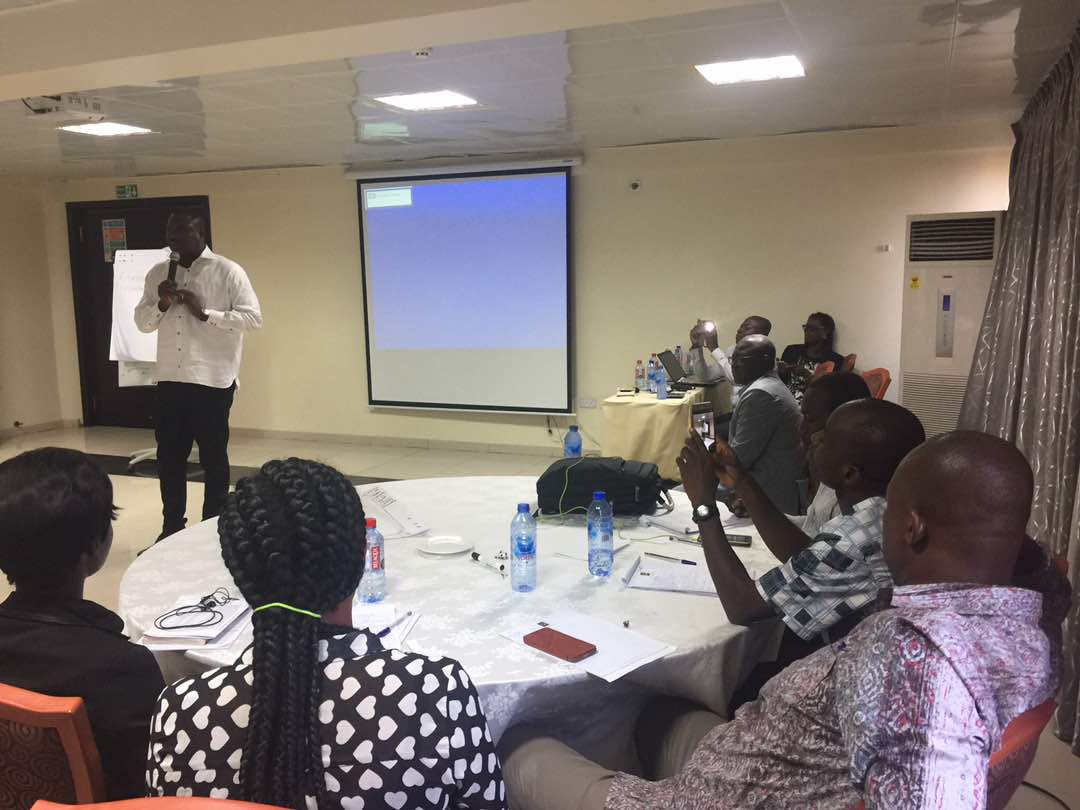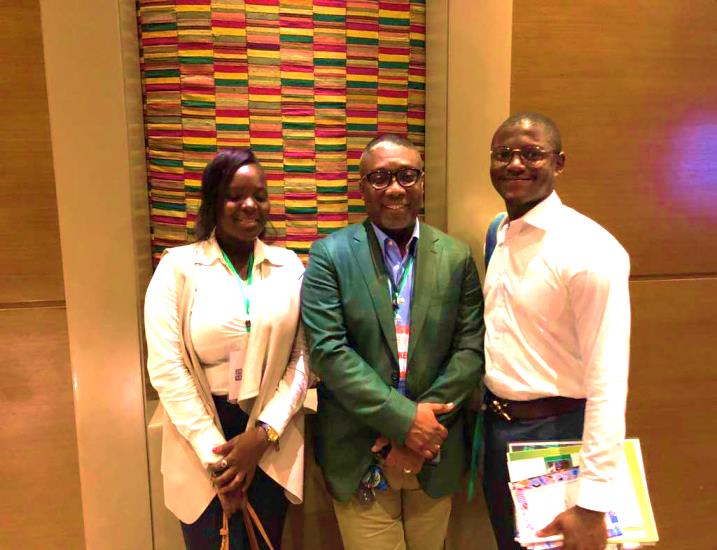

NiewTree Ghana Limited has been involved in training and capacity building for some institutions in Ghana over the short period of its existence. We have been engaged for training for Local Government Authorities in the Greater Accra Metropolitan Area and in the field of Municipal Sanitation Planning. The trainings are conducted in participatory and interactive formats. Practical application of theories, yielding outputs which can be utilized at the offices.
We continue to work in training and capacity building for all categories in public and private actors as well as CSOs, NGOs and FBOs.NiewTree Company Limited as the consulting firm to Greater Accra Metropolitan Area (GAMA), organized a three (3)-Day Training Programme on Sustainable Municipal Sanitation Planning for each of the MMAs in Greater Accra. The project was designed to benefit at least 250,000 people living in low income communities within the eleven (11) metropolitan /municipal assemblies which make up the GAMA namely, Accra Metropolitan Assembly, Tema Metropolitan Assembly, Ga West Municipal Assembly, Ga East Municipal Assembly, Ga Central Municipal Assembly, Ledzokuku-Krowor Municipal Assembly, Ga South Municipal Assembly, Adenta Municipal Assembly, Ashiaman Municipal Assembly, La Dade-Kotopon Municipal Assembly and La Nkwantanan Municipal Assembly.






The main components of the project included the provision of environmental sanitation and water supply services; improvement and expansion of the water distribution network; planning, improvement and expansion of GAMA-wide environmental sanitation situation; as well as institutional strengthening and capacity building.
The broad objective of the training was to equip participants with the necessary competences to analyse, design and implement sanitation development plans and sanitation systems for their MMAs that are compatible with local customs and available human and material resources and also equip participants to prepare their MESSAP and DESSAP.
Also, the specific objectives were to:
Work out plans of action to stimulate the design and roll-out of sustainable infrastructure facilities including focus on the pro-poor priority areas of accessibility and affordability

Welcome to a world of new experience in consultancy services in Ghana. We are contemporary firm with a team of ambitious young professionals driven with values and principles and ethics that ensures that our clients are offered creative ideas, innovations and hands-on practise in solving challenges. We offer services to local, national and international clients. We have experience, the team and the skills to do this. Our focus is on sustainable development, urban planning and management, urban mobility, local government capacity building, youth development, water, sanitation and hygiene as well as agriculture. We look forward to an exciting time of influencing practice with our experience and innovative consultancy services. You are welcome to our world.
NiewTree Ghana Limited is a multi-functional consultancy firm and composed of specialised and skilled professionals who have experience in both national/Local government and International Development. Our staff have adequate knowledge in their chosen fields.
Next to Blue Diamond Hotel, Taifa, Ga East Municipal Assembly.
GPS Address:GE-330-8256
P.O.BOX 9065, Accra,
Republic of Ghana.
+233 302 439167
+233 267 052415
support@niewtree.com
Copyright © 2023 NiewTree Ghana Limited. Powered by SwizTech
